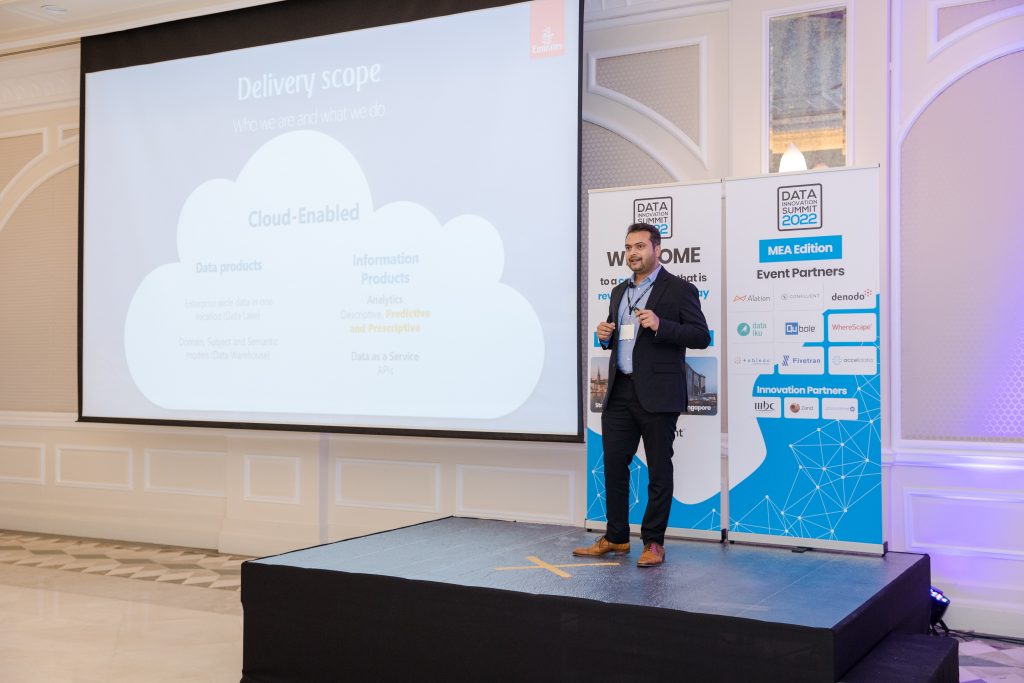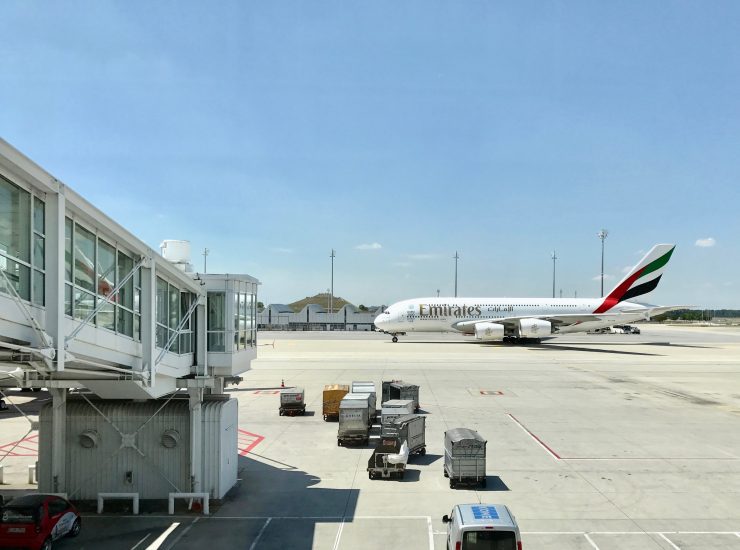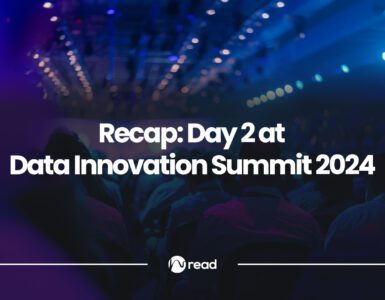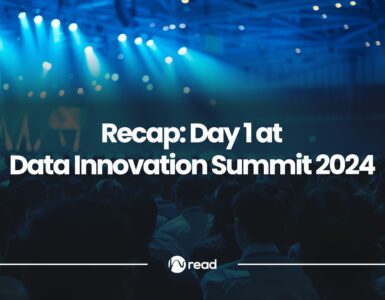We’ve previously explored the concept of data democratization within organizations during our events. But what does that mean for the airline industry, and what factors drive this process?
Even though many airline companies have developed strategies and programs for data democratization, the COVID-19 pandemic was a factor in speeding this process.
According to the companies in the airline industry, the reason for this is the new changed conditions of functioning of the consumers, which have made companies stay innovative and respond to those consumers’ needs efficiently and effectively.
But, what is data democratization, and why is it important to organizations? There are many definitions for sure, but most of them conclude that data democratization is when everybody in an organization has access to data, works with data comfortably, with no barriers to access or understanding, and, based on this, makes better data-informed decisions. One of the general benefits of this process is improved performance of organizations internally and externally.
In March, in Dubai, during the Data Innovation Summit for the Middle East and Asia (MEA) region, we had a unique opportunity to listen to how Emirates approached and is developing data democratization. At the Analytics and Data Science Stage, Niket Doshi, Senior Data Scientist and Platform Lead at Emirates, shared insights about the data democratization journey of this company which operates over 260 aircrafts and has about 46000 employees, connecting old and new economies from Asia, to Africa and the Americas.
“Operating a network like this is challenging if you want to stay relevant in the market and be loved by the customers from all around the world. We need to keep innovating, trying new ideas, and embracing new technologies. All of that while staying true to the vision and the values.”, he said at the beginning of the presentation.
Setting Objective and Delivery Scope of Data Democratization
The starting point of the data democratization of Emirates was setting objectives and delivery scope. The objective was clear – to transform Emirates into a data-driven organization. On the other hand, the scope was enterprise-wide, which means to provide data-services to all divisions of Emirates. The objective and the scope are drafted and implemented through the Enterprise Data and Analytics, the Center of Excellence formed to cater to all Emirates Group data needs and sponsored by the president of Emirates Airlines, laying the foundation to make Enterprise Data & Analytics a core business function of the organization.
The core part of the Center of Excellence is the Centralized Data Lake, which contains enterprise-wide data in one single location. It also allows the company to build and enrich the data from various sources into specific domains, subjects and semantic models. This further enables the delivery of information products to the business with the help of advanced descriptive, predictive and prescriptive analytics and providing data as a service.


Achieving Efficiency With Democratizing Data Science
As mentioned before, many companies in the airline industry started data democratization before the pandemic, led by their sustainability goal. That is what Niket Doshi, in his presentation, emphasized in the Emirates journey, where the central role is the data scientist. Based on the study on food waste globally, the company found out that 1.3 billion tons of food are wasted every year, and over 2 million tons of food are wasted just in the airline industry every year. That is how the company started to work on the project of optimizing meals for the flights.
“We already knew we had to do something about it”, pointed out Niket Doshi.
One of the motives for this project was the side effects of food wastage: the energy spent to produce food, world hunger, transport pollution and greenhouse gas emissions. The aim was to control this while increasing airline operational efficiency and reducing costs.
Using data and AI, the company is able to meet their customers’ first choice of meal on board, while reducing the total meals uplifted and the buffer kept from 10% to 5%. This was just one of the problems that Emirates is tackling. The idea is to deliver at scale, and the Emirates is achieving that through four pillars:
- Technology
- Data
- Process
- People
Operationalization of AI Projects
Niket Doshi explained how the Emirates gets the most value from the AI projects during the data democratization process. That’s by giving equal importance to the following four steps:
- Data science delivery framework – The company develops this framework where they start the ideation process and collect high-level ideas from various business stakeholders. Later these ideas are delivered to the data science assessments funnel. The Data Science team formulates and defines problem statements and calculates the complexity of how much it will take to deliver a data science use case. Once this is done, all the high value, low complexity use cases are prioritized, and they go into the exploration funnel where the data scientists sit close to the business. They work upon these ideas together, process the data, and train the AI model. As soon as the expected success is realized, the team immediately starts deploying them into production. Once deployed, they are integrated into the business processes.
- People – Every AI solution is made of very complex interlinked components which can only be done or built by a team effort. Hence, delivering any AI project is not just the task of a data scientist alone. It is also equally essential to have a team of engineers and architects, business users and data scientists to get the most out of the AI projects. When these forces work in close collaboration for one common purpose, for Emirates, this means getting the maximum benefit from any AI delivery process.
- Data science platform ecosystem – According to a Corinium Intelligence study from 2021, 98% of the enterprises accelerated their data migration journey to the cloud due to the COVID-19 pandemic. This information was just confirmation for the Emirates’ to continue their vision of having data and compute systems on the cloud. “So not just our data, but the entire data ecosystem is entirely deployed on the cloud. Being on the cloud has additional benefits. It allows us to scale the compute as much as we want on-demand without even thinking about how we access different infrastructures. The user-friendly interface has allowed our data scientists, analysts, and business users to quickly develop the prototypes, automate and operationalize pipelines, and govern their solutions end-to-end.”, Niket Doshi explained in his presentation. Once this is done, the company exposes the trained AI model and integrates them into the systems. They also allow the end-users and business users to consume the final output of the data science model by developing different dashboard frameworks.
- Governed self-service model – This model for Emirates is the last piece of the puzzle to truly democratize data science. It means to train and upskill the people in the company where the Center of Excellence function acts as a support service that helps the business users understand any project. This model also must guarantee to provide the people in the company with trusted data and co-developing solutions aligned with the company’s framework. The deployment of those solutions and providing post-deployment support complete this model.


Key takeaways
“This is truly an age of data, and to be one step ahead of your competition, organizations sincerely need to embrace data-driven strategic decision making and enable its workforce by empowering them with state-of-the-art tools to achieve business objectives.”, said Niket Doshi in the summary of his presentation. If anyone compares the journey of the Emirates Airlines has towards democratizing data science with the cycle of a fruit-bearing tree, these would be the phases:
- Having sponsorship from the top
- Setting up a platform
- Setting up your enterprise data lake where anyone can access the data
- Provide insights into the business as quickly as possible
- Develop a core data science team as a center of excellence
- Co-developing solutions with business users who are inclined to work on data, train and upskill them
- Enable them to govern self-service, know the framework and follow a path
More related articles:
- Data Democratization with EQT – Pedram Birounvand, EQT Group
- Democratization Of AI – Making State-Of-The-Art Techniques Available For All – Luka Crnkovic-Friis
Featured image credits: Felix at Unsplash















Add comment